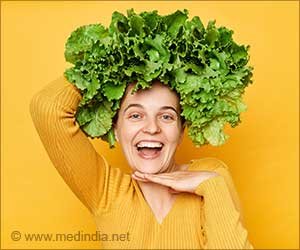Dietary Secrets to Lush Hair

In the realm of beauty, luxurious hair is often deemed the crowning glory of an individual. But when that glory begins to thin or fall out, it can become a source of significant stress. With the market flooded with countless hair care products and treatments, it is essential to understand one crucial thing: our diet plays an indispensable role in the health of our hair (1✔ ✔Trusted Source
Diet and hair loss: effects of nutrient deficiency and supplement use
Go to source).
Role of Nutrition in Hair Health
Every strand of hair on our scalp is a testament to our nutrition. Hair, predominantly made up of a protein called keratin, needs a consistent supply of specific nutrients to grow healthily. While various factors contribute to hair loss – including genetics, hormonal imbalances, and stress – diet remains a paramount factor that is often overlooked (2✔ ✔Trusted Source
Hair loss. What causes it and what can be done about it
Go to source
).
Protein: Building Block of Hair
As mentioned, keratin, a protein, is the primary constituent of hair. Thus, it’s no surprise that protein intake is directly related to hair health. A protein-deficient diet can hinder hair growth and even cause hair loss. Ensure your diet includes ample protein sources like poultry, fish, eggs, and legumes.
Iron: The Oxygen Carrier to Your Hair Follicles
Iron is a pivotal mineral as it helps red blood cells transport oxygen to all body cells, including hair follicles. An iron deficiency (anemia) can lead to hair loss. Incorporating iron-rich foods like spinach, red meat, and lentils can be beneficial for hair health.
Biotin: The Hair Growth Vitamin
A member of the vitamin B family, biotin, plays an instrumental role in hair growth (3✔ ✔Trusted Source
Biotin
Go to source
). While biotin deficiencies are rare, when they occur, hair loss is a common symptom. Eggs, nuts, and whole grains are excellent sources of biotin.
Omega-3 Fatty Acids: The Scalp Nourisher
These essential fatty acids, which our body cannot produce, nourish the scalp and may prevent hair from drying out. Sources include fish like salmon, flaxseeds, and walnuts (4✔ ✔Trusted Source
Effect of a nutritional supplement on hair loss in women
Go to source
).
Zinc: The Hair Tissue Repairer
Zinc is involved in hair tissue growth and repair. It also helps keep the oil glands around hair follicles working optimally. Foods high in zinc include meat, shellfish, and legumes.
Link Between Diet and Hair Vitality
While deficiencies of the nutrients mentioned above can lead to hair loss, it’s essential to understand that sudden or severe hair loss can be a sign of a more significant health issue. Crash dieting, sudden weight loss, or an imbalanced diet can all contribute to hair shedding.
On the flip side, overconsumption of certain nutrients, like vitamin A, has also been associated with hair loss. It’s all about striking a balance.
Link Between Processed Food and Hair Loss
In our fast-paced world, where convenience is often prioritized, many are increasingly leaning on processed foods. However, these foods are usually stripped of essential nutrients beneficial for hair health. Moreover, they often contain high levels of salt, sugar, and unhealthy fats, leading to other health concerns that indirectly impact hair health.
Fad Diets and Their Impact on Hair Loss
Every so often, a new diet trend emerges, promising quick weight loss or health benefits. But jumping onto these diet bandwagons without understanding their nutritional implications can have detrimental effects, including hair loss. Always consult with a nutritionist or healthcare professional before embarking on any drastic dietary changes.
Advertisement
While a balanced diet can significantly promote hair health, it’s essential to remember that everyone’s hair loss journey is unique. What might work wonders for one person might not necessarily yield the same results for another.
For those experiencing noticeable hair loss, it’s crucial to consult with a dermatologist or trichologist. They can provide insights into potential underlying causes and recommend dietary changes or treatments accordingly. In the end, the road to luscious locks is paved with good nutrition. Remember, it’s not just what you put on your hair but what you put in your body that counts.
References :
- Diet and hair loss: effects of nutrient deficiency and supplement use – (https://pubmed.ncbi.nlm.nih.gov/28243487/)
- Hair loss. What causes it and what can be done about it – (https://pubmed.ncbi.nlm.nih.gov/2652126/)
- Biotin – (https://pubmed.ncbi.nlm.nih.gov/32119380/)
- Effect of a nutritional supplement on hair loss in women – (https://pubmed.ncbi.nlm.nih.gov/25573272/)
Source: Medindia
Source link
#Dietary #Secrets #Lush #Hair



